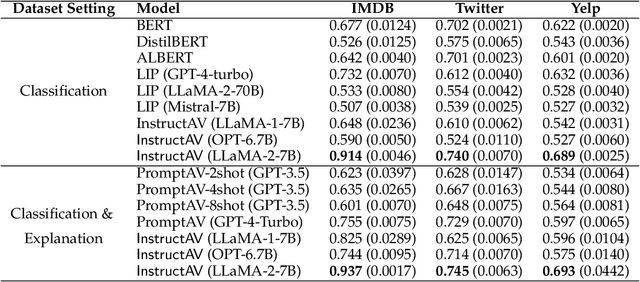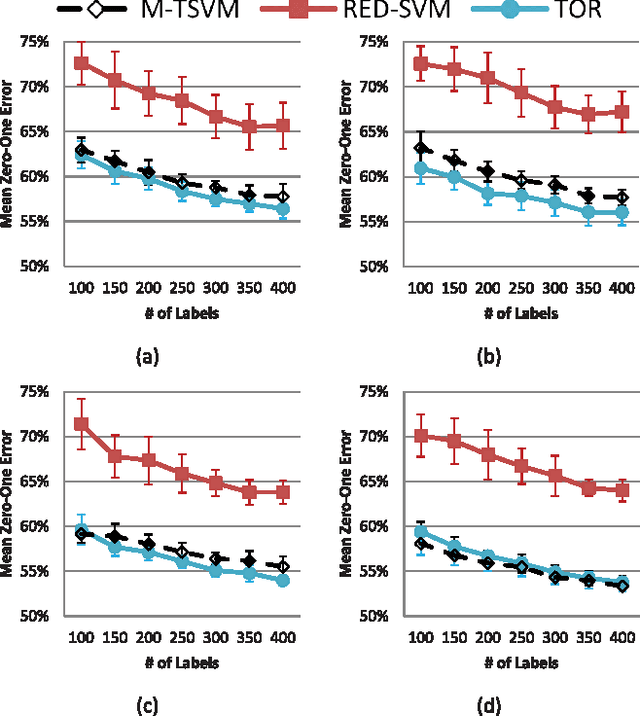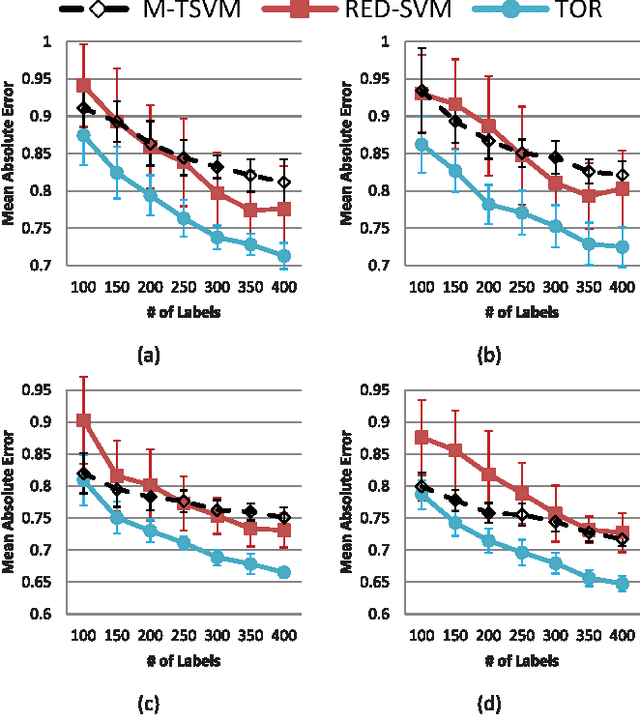Chun-Wei Seah
InstructAV: Instruction Fine-tuning Large Language Models for Authorship Verification
Jul 16, 2024



Abstract:Large Language Models (LLMs) have demonstrated remarkable proficiency in a wide range of NLP tasks. However, when it comes to authorship verification (AV) tasks, which involve determining whether two given texts share the same authorship, even advanced models like ChatGPT exhibit notable limitations. This paper introduces a novel approach, termed InstructAV, for authorship verification. This approach utilizes LLMs in conjunction with a parameter-efficient fine-tuning (PEFT) method to simultaneously improve accuracy and explainability. The distinctiveness of InstructAV lies in its ability to align classification decisions with transparent and understandable explanations, representing a significant progression in the field of authorship verification. Through comprehensive experiments conducted across various datasets, InstructAV demonstrates its state-of-the-art performance on the AV task, offering high classification accuracy coupled with enhanced explanation reliability.
Transductive Ordinal Regression
Sep 03, 2012



Abstract:Ordinal regression is commonly formulated as a multi-class problem with ordinal constraints. The challenge of designing accurate classifiers for ordinal regression generally increases with the number of classes involved, due to the large number of labeled patterns that are needed. The availability of ordinal class labels, however, is often costly to calibrate or difficult to obtain. Unlabeled patterns, on the other hand, often exist in much greater abundance and are freely available. To take benefits from the abundance of unlabeled patterns, we present a novel transductive learning paradigm for ordinal regression in this paper, namely Transductive Ordinal Regression (TOR). The key challenge of the present study lies in the precise estimation of both the ordinal class label of the unlabeled data and the decision functions of the ordinal classes, simultaneously. The core elements of the proposed TOR include an objective function that caters to several commonly used loss functions casted in transductive settings, for general ordinal regression. A label swapping scheme that facilitates a strictly monotonic decrease in the objective function value is also introduced. Extensive numerical studies on commonly used benchmark datasets including the real world sentiment prediction problem are then presented to showcase the characteristics and efficacies of the proposed transductive ordinal regression. Further, comparisons to recent state-of-the-art ordinal regression methods demonstrate the introduced transductive learning paradigm for ordinal regression led to the robust and improved performance.
 Add to Chrome
Add to Chrome Add to Firefox
Add to Firefox Add to Edge
Add to Edge